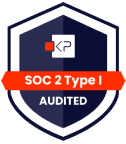In early April of this year, NPR ran a story on the underbanked and what it meant to run one’s financial life outside the American banking system. Whether it’s the perception of higher fees, lack of trust, or something else, 63 million underbanked or unbanked Americans do not use a financial institution to save money, cash checks, apply for credit, or take out a small dollar loan.
NPR’s piece explored how those consumers navigate their daily lives and manage their finances in an increasingly cashless society, choosing to go without support from stabilizing financial institutions like their local credit union. Now imagine those consumers’ predicament in the wake of the coronavirus pandemic in early 2020, when the share of cashless businesses more than doubled in the United States, per BusinessWire.

Image | artem beliaikin, Unsplash
If the country is going to financially recover, community development financial institutions (CDFIs) need to play an increased and much more visible role to attract and nurture such underbanked consumers’ journey to financial inclusion.
What are CDFIs?
CDFIs are financial institutions, credit unions and banks, that focus on serving individuals in low-income communities that have historically been disconnected from the greater financial system. (NerdWallet) One advantage CDFIs offer unlike other institutions is they rely less on credit scores when evaluating members’ creditworthiness and providing small dollar loans or other products.
CDFIs can nurture long-term relationships with members to increase financial literacy, determine savings goals, and take necessary steps to build credit while accessing affordable small dollar loans. CDFIs also represent loan funds and venture capital funds that incorporate a community-first mission that benefits their immediate surrounding county or region.
It is that kind of affordable access to products and other resources that has made Canopy Credit Union in Spokane, Washington, such a success story.
Canopy’s lending practices are a perfect example. Their designation as a CDFI means they are trained to help individuals of modest means as well as those who have less than perfect credit. It gives Canopy the chance to act as loan advocates by looking at each member’s situation differently and offering tailor-made mentorship for each individual’s path forward.
Canopy’s certified employees understand that one’s credit score does not define the member. Staff even provide free financial coaching, offering instruction on creating a budget, understanding one’s credit score, setting goals, and ultimately guiding the member towards improved financial inclusion and economic stability.
The power of embracing financial inclusion and the credit unions that think ahead and employ platforms like QCash can get many of those 63 million underbanked and unbanked consumers back on the path to financial success.
For more information on the QCash small dollar lending platform, click here to go to our company page and view our product demo.






